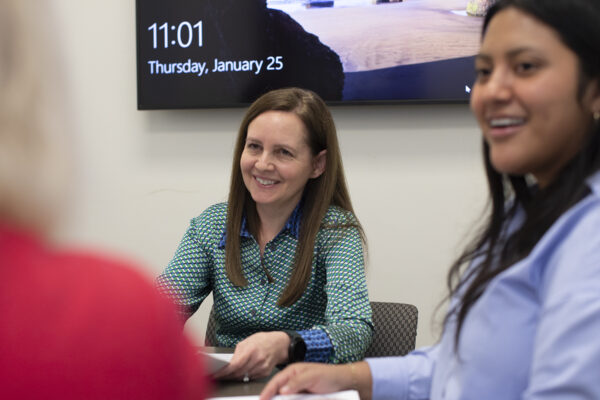The Alabama Supreme Court recently ruled that frozen embryos are “extrauterine children” under the state’s statute that allows recovery of damages in civil actions for wrongful death.
The ruling will have far-reaching implications in the state and beyond, said an expert on family law and reproductive justice at Washington University in St. Louis.
“The opinion asserted that the text of the wrongful death statute, enacted in 1872 — well before the age of assisted reproductive technology — compels this result and that, even if it did not, a state constitutional amendment protecting the ‘sanctity of unborn life’ requires the statute to be read that way,” said Susan Appleton, the Lemma Barkeloo & Phoebe Couzins Professor of Law.

“Several members of the court wrote separate opinions, mostly agreeing with the outcome and, in one by the chief justice, explicitly quoting biblical passages and claiming to have theological support,” she said.
“In the only encouraging news, the court invited legislative correction, which could come in the form of a revised wrongful death statute, a special fertility medicine protective law or even a citizen petition amending the state constitution,” Appleton said. “Without such correction, the ruling is shocking on its own terms, while also raising the specter of criminal liability for the mistreatment or destruction of embryos.
“It contradicts the prevailing medical, bioethical and legal view that embryos — sometimes called ‘pre-embryos’ prior to intrauterine transfer — deserve special respect but are not persons. Indeed, taken to its logical conclusion, the ruling could threaten the use of contraception that is thought to prevent implantation after fertilization.”
Nonetheless, Appleton said, changing the law so that it protects only “intrauterine children” post-implantation, while fixing the immediate problem, signals profound disrespect for the person in whom the uterus happens to be located.
As practiced in this country, in-vitro fertilization (IVF) typically entails hormonal stimulation of the ovaries to spur production of multiple oocytes, or developing eggs, that can be extracted and fertilized in a dish, with at least some of the resulting embryos frozen and stored for subsequent transfer to a uterus ready to start a pregnancy, Appleton said.
“Success rates vary by clinic, but even the best are around 50%. Ultimately, once patients reach a desired family size, they may request that their remaining embryos be discarded, donated for research or donated to other families,” she said.
Soon after the Alabama Supreme Court’s ruling, several clinics that perform IVF in the state suspended their work.
“Clearly, discarding embryos in Alabama has become legally risky,” Appleton said. “One can also understand possible reluctance to create new embryos at this time. It seems more perverse, however, for the clinics to suspend planned embryo transfers. After all, given the court’s reasoning, wouldn’t transfer to a welcoming uterus be the best way to nurture embryos and allow them a chance to reach their full potential, consistent with the ‘sanctity of unborn life’? Indefinite freezing respects no one.”
It’s ironic that the lawsuit that imperils IVF came from couples who support the practice but sought to hold the clinic responsible for allegedly failing to take proper care in protecting their frozen embryos from tampering by an intruder, she said.
“The intruder entered the storage area, dropped the vials and destroyed the embryos the plaintiffs had created,” Appleton said. “Now the action that plaintiffs have taken in response to their deeply felt loss might result in similar losses for many others throughout the state.”


